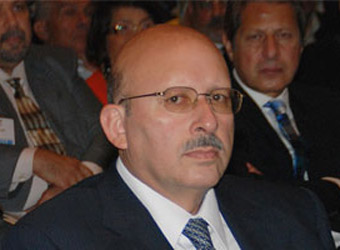By virtue of a strong financial position, liquidity and profitability, the Arab banks attained average growth rates of 8% by the end of 2012, facing the security and political challenges undergone by the region, Chairman of the Union of Arab Banks (UAB) Mr. Mohamed Barakat said in a keynote speech on Thursday at the Annual Arab Banking Conference 2013 in Beirut.
Under the title of “Economic Implications of Arab Transitions: Reforms and Role of Banks”, the Annual Arab Banking Conference 2013 have kicked off on Thursday in Beirut to be held for two days; on the 14th & 15th of November 201. The conference will also celebrate the 40 years anniversary of the Union of Arab Banks (UAB).
Mr. Barakat also referred that the volume of the assets in the Arab banks grew by 2% to record around US$ 2.61 trillion by the end of 2012. In addition, the volume of deposits in the Arab banks surged to US$ 1.61 trillion; whereas the loans hiked to US$ 1.42 trillion and the owners’ equity rose to US$ 259 billion.
Furthermore, the UAB Chairman said the initial indicators for 2013 show that the Arab banks are still achieving high growth rates since those indicators are saying the assets have climbed by 3.1% to US$ 2.7 trillion.
Since the beginning of 2011, many Arab countries have been witnessing serious unrest on all levels driven by a group of long-running economic, social, political problems, Mr. Barakat added.
Such unrest has directly contributed to the lackluster performance of their economies, registering accumulation of debts, budget deficits, mounting unemployment rates among youth, economic structural imbalances, development gaps among Arab nations and the erosion of the middle-class position that represents the backbone of the nation’s economy.
As a result, the markets of those countries have undergone a state of recession. The unemployment rates in the Arab region have surged by 19%, the number of jobless Arabs reached 20 million, most of them are youth, Barakat added.
The recent political developments have had serious economic repercussions on the countries that witnessed turmoil such as the drastic decline in the growth rates and the credit ratings of those countries, negative changes in the balance of payments and massive fall in the volume of the foreign investments.
However, Mr. Barakat said he expected some breakthroughs by the year of 2013.
The UAB Chairman also revealed a decline in the volume of the foreign direct investments (FDI) in the Arab countries to US$ 47 billion by the end of 2012, against US$ 66.2 billion by the end of 2010. He stressed the importance of alluring and redirecting some Arab businesses abroad so as to make investments in the Arab markets.



